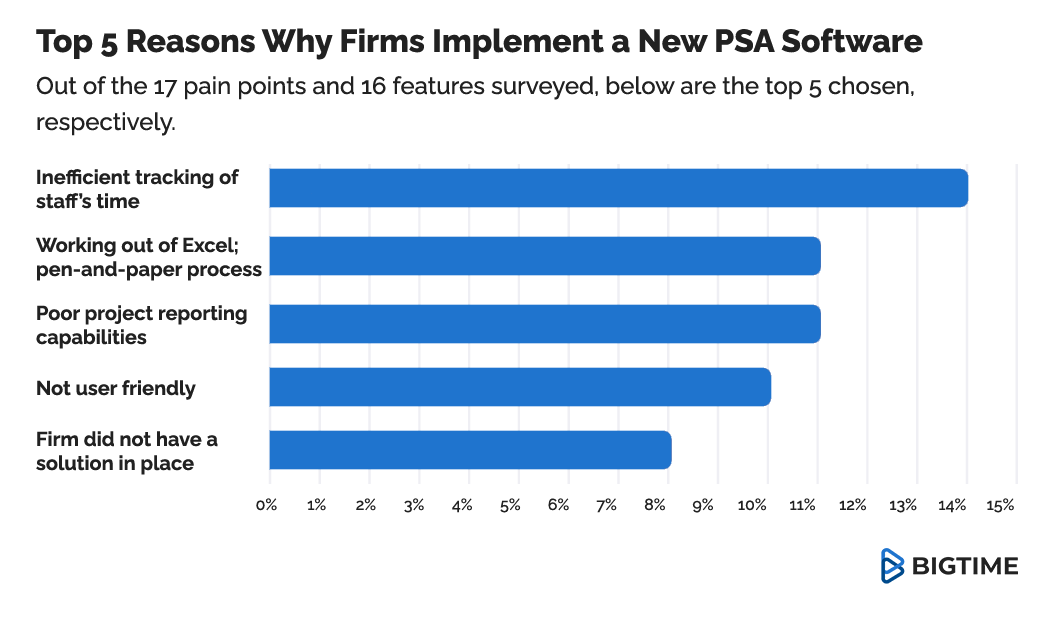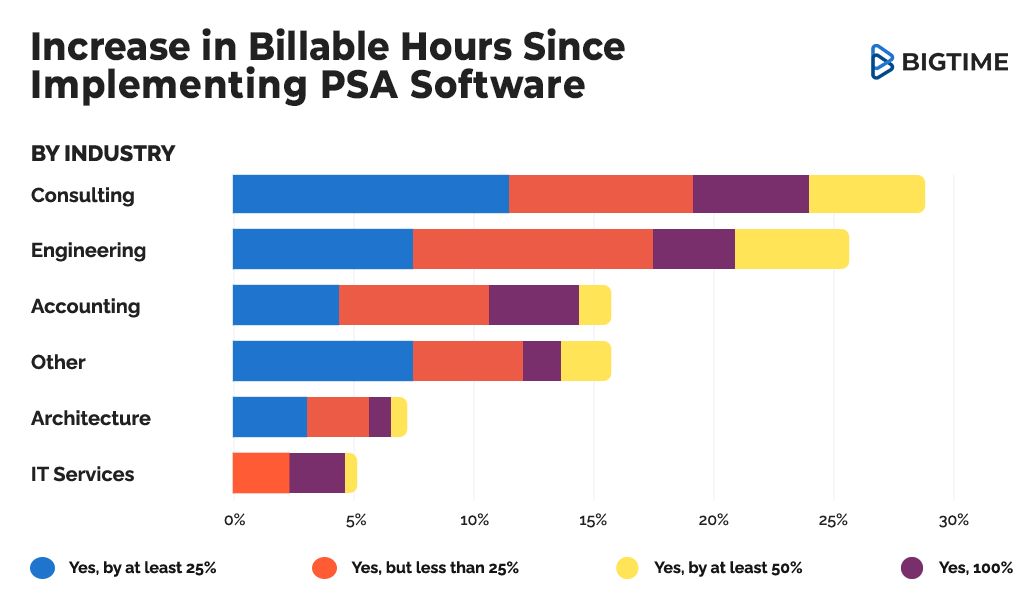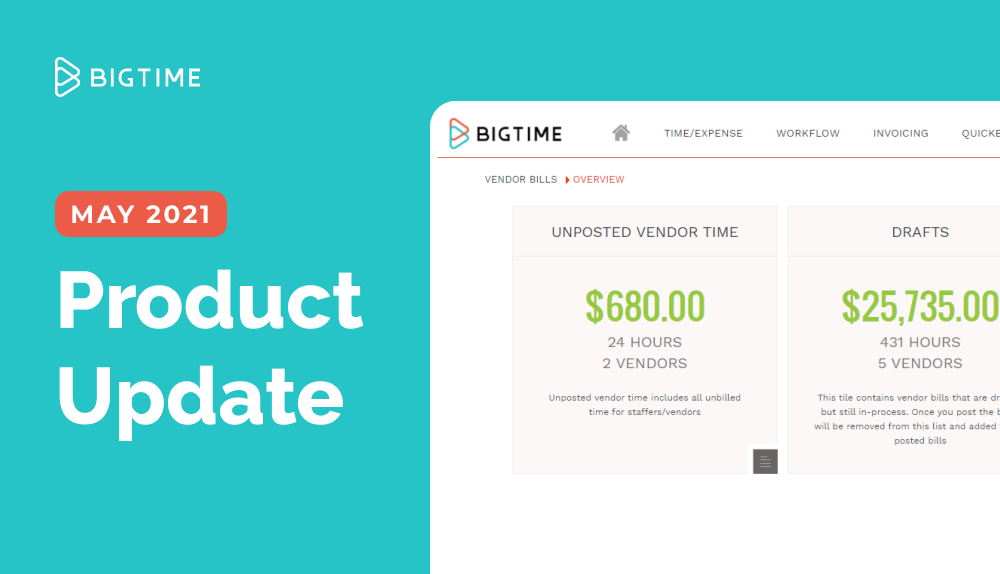
Introduction: The Effect of Homegrown Systems When Trying to Scale a Consulting Business
Homegrown operation systems can be a double-edged sword for consulting businesses. On one hand, they can provide a level of customization and control that is difficult to achieve with off-the-shelf solutions. On the other hand, they can be costly in terms of both time and money, and can ultimately hinder success when it comes to scaling a consulting business.
When a homegrown system no longer meets the needs of a growing consulting firm, this can lead to pain points such as inefficiency, wasted time and resources, and lost revenue. In this post, we will discuss how to self-diagnose if your organization has outgrown its homegrown systems and processes, and the ROI you could be missing out on by not upgrading to a centralized, purpose-built system such as professional services automation (PSA) software.
Self-Diagnosis: How to Tell if You’re Outgrowing Current Systems When Scaling a Consulting Business
A large number of consulting firms still rely on homegrown software and spreadsheets, with Excel and Google sheets being some of the most widely-used applications. If your consulting firm is still utilizing a homegrown system, it’s likely that your internal operations are preventing your business from scaling to its potential.
There are several signs that can indicate an organization has outgrown its homegrown systems and processes. Some questions to ask and consider:
- Are we still working out of spreadsheets?
- Are we having difficulty scaling or adapting to changing business needs?
- Do we utilize inefficient or manual processes that lead to wasted time and resources?
- Is it complicated to track or report on professional services KPIs?
- Are there disjointed systems due to the challenge of integrating with other systems or technologies?
- Are we not yet profitable?
- Do we practice rudimentary time and expense capture?
- Is there a lack of real-time insights preventing timely and proactive decision-making?
- Is our financial visibility and control limited?
- Are we able to predict our financial performance?
- Rudimentary contract and risk management.
- Do we have lengthy invoice cycles that affect project profitability?
- Is our data collection incomplete resulting in no full picture of time and expenses related to accounts and individual projects?
Business process maturity is a concept based on optimizing core processes that include delegating tasks, budgeting, analyzing business data, monitoring progress, reporting performance, setting milestones, and tracking expenses. As professional services organizations (PSOs) move from manual processes to automated software, they often gain improved visibility into their operations at a variety of levels.
This can not only lead to increased performance and efficiency but also improved compliance with industry regulations for both internal and external stakeholders. When implemented correctly these improvements will enable businesses to grow and scale rapidly. If you recognize any of the above signs or your consulting business is positioned to progress to the next maturity level, the next step is to understand the extent of unrealized revenue and growth opportunities.

The Cost of Outgrown Systems on Professional Services Growth and Operations
One of the biggest costs of outgrown systems is wasted billable hours. When processes are inefficient or manual, consultants and employees spend more time on administrative tasks and less time on billable work. These tasks can be time-consuming and divert resources away from more important business activities, such as delivering great work and developing new business.
If your firm is not using PSA software, chances are, you’re working out of Microsoft Excel. The majority (22%) of non-PSA customers reported working out of spreadsheets, and 5 out of 8 Excel users also reported using more than 2 other solutions in conjunction. This means there is no one source of truth for their operations. Disjointed systems can lead to manual-entry mistakes, reduction in billable time and utilization, and even decrease in productivity and revenue.
Another cost to consider is the opportunity cost of using a homegrown system. By choosing to develop and maintain your own operation system, benchmarked data indicates less benefits when compared to consulting firms using a more advanced solution. This includes features and functionality that could help your consulting business operate more efficiently and effectively, as well as the ability to scale and grow more easily.
Growing a Consulting Business and Increasing ROI: The Benefits of Professional Services Automation (PSA) Software
The key to balancing all of the inputs that affect bottom-line profit is having the right systems and processes in place to measure and manage each of the different factors. For a professional services firm, the core system to manage the business is PSA software. It often sits between a CRM solution like Salesforce and accounting software such as QuickBooks or Sage. PSA systems manage the process of delivering work from planning and staffing projects through to professional services billing and recognizing revenue.
PSA solutions are an essential investment for growing professional services firms—an investment that can pay off handsomely when properly selected and thoughtfully implemented. They replace the stand-alone tools that helped a professional services firm get off the ground with a consolidated suite that fuels growth. Siloed time tracking tools, budgeting spreadsheets, project management systems, scheduling whiteboards, and invoicing processes can all be replaced in favor of an integrated solution that offers a single version of the truth.
Investing in PSA software can result in enormous amounts of time, cost and risk efficiency. By streamlining processes, you avoid duplication of data entry and other error-prone manual operations that saves time and money. You’ll also get the visibility and control you need to scale your business efficiently, allowing you to focus on strategic initiatives that drive growth. Let’s explore the benefits a bit deeper.

The data in the PSA Software Benchmark Report confirms that working solely out of Excel is a pain point for professional services firms. While it may be a daunting task, implementing PSA software can actually save firms time and money with its robust features and will continue to grow as they do.
Project Margin
PSA systems like BigTime help growing professional services organizations generate more profit per dollar of revenue generated in several ways. They provide real-time visibility into the health of projects so that corrective actions can be taken early on when the effects of those actions are magnified, rather than late in the game when extraordinary measures are more often required.
Excel spreadsheets can provide a snapshot of where project costs are at, but they lack the detail and insights into which resources are added to or removed from projects in terms of profitability. The resource scheduling components of PSA software ensure that just the right resource is in place on the right project at the right time. This ensures that more junior, higher margin resources are utilized when possible, and more senior, lower margin resources are leveraged only when necessary.
PSA solutions link together time and expense tracking with bill rate management and invoicing capabilities into a single project accounting system. Research from our PSA Software Benchmark Report showed firms that invested in PSA software get paid faster. While the industry average for collecting payments is about 45 days, 57% of PSA software customers say it takes less than 1 month to get paid–13% of those customers report receiving payment in as little as an hour.
BigTime customers who utilize our integrated payments processing solution, BigTime Wallet, report receiving payment in as little as 9.6 days on average – 5X faster than the industry average. By investing in PSA software, you get real-time dashboards that break down project expenses, configurable invoices and invoicing processes, and automatic invoice reminders so invoices go out faster.
These PSA features provide important control that ensures that every hour that can be invoiced to the client is billed properly, thus reducing sources of revenue leakage. PSA software also automates time tracking so that time logged is automatically integrated into the financials for each project which provides the visibility needed to accurately assess costs and profitability.
Without professional services automation in place, all of these factors, each seemingly small and insignificant, add up to less efficient organizations needing to generate more revenue in order to achieve the profit target than their more efficient peers.
Billable Utilization
Project margins and bill rates help translate profit into revenue and subsequently into billable hours. One of the most significant benefits a PSA solution provides is increasing billable utilization, which, in our model means that fewer billable people are needed to produce the same number of billable hours. Efficient resource scheduling, including understanding who has availability to work on other projects, is the key to improving utilization.
6.2% of professional services firms reported their PSA software increased billable utilization by 100%
PSA software enables organizations to satisfy staffing requests faster, schedule resources more tightly, and make more efficient use of available resources. This isn’t about wringing the last drop of sweat equity out of each employee. Solutions like BigTime take each individual’s skills, professional development goals, travel preferences, and more into account, which results in employees being happier in their jobs and improved employee attrition rates.
By integrating time and expense reporting into the same data system or platform, businesses will gain greater insight into how their resources are being allocated. A PSA tool allows managers to better assess project progress and streamline the process for tracking expenses and billable hours, which results in an increase in team productivity.
The key to that efficiency? Any PSA solution allows you to enjoy some of those gains. BigTime as your choice of Professional Services Automation software takes it to the next level.
In our recent BigTime PSA Software Benchmark Report, research indicated that professional services firms who implemented BigTime to improve project workflows in one seamless operating system saw a 52% average increase in productivity compared to other PSA software who are seeing an average 27% improvement. This increase in productivity helped to increase the number of billable hours generated by professional services organizations.

Average Bill Rates
Professional services firms always have to walk a fine line between maximizing bill rates and remaining competitive in their respective markets.
Professional Services Automation software provides detailed analyses on what it took to deliver projects in the past and what activities took more or less time than expected. It provides insight into which project managers were more or less successful at sticking to plans and budgets, and which projects resulted in unexpected rate attrition. Firms that have access to this wealth of historical analytics can turn it into a competitive advantage, and can use it to drive a comprehensive strategy to determine bill rates.
BigTime takes this data-driven strategy a step further by helping organizations understand where rate losses stemmed from. Starting from the sales process, through contract negotiation, and finally into delivery, BigTime’s rate realization model helps managers pinpoint problem areas. All these historical analytics, along with the ability to tightly manage the project delivery process, enables organizations to successfully win new work while still maximizing bill rates.
Percent of Billable Staff
Finally, PSA software helps to, well, automate your professional services organization. What that really means is that a lot of the mundane stuff—wrestling with spreadsheets, extracting and manipulating data, negotiating for staff, compiling manual status reports, hand-editing invoices, re-keying data, and more—gets streamlined into a single system. In turn, what this means is that organizations require less overhead to support their billable staff.
When we add together the reduction in billable resources needed to generate the revenue with fewer overhead personnel needed to support them, we end up with a smaller staff needed to generate a targeted profit. The difference in total number of staff needed to reach your profit goal is materially smaller in a more efficient organization.
By eliminating error-prone manual processes and replacing homegrown systems, PSA software lets you focus on what’s important: gaining the visibility and control you need to manage and grow your consulting business.
Case Study: A Real-World Example of How to Scale a Professional Services Business by Replacing a Homegrown Solution
One example of a professional services organization that was able to position itself for sustainable growth after implementing PSA software is the iFish Group. The iFish Group is a technology-solution service company helping state and local government agencies and departments develop IT strategies. Prior to the upgrade, the iFish Group utilized a homegrown solution with a self-built time tracking system.
Scott Schriber, Director of Operations, estimated he was spending $5,000-$10,000 of billable time on internal processes and to update a homegrown time tracking system. He added that the company logged approximately $100,000 of billable time to develop it. Not only did implementing PSA software allow them to optimize billable time more efficiently, they were also able to dramatically improve:
- How invoices were built, stored, and previewed
- Reconciliation between project finances in QuickBooks Online
- Time entry review processes
- Length of time needed for monthly invoices to go out
PSA tools are so essential to services businesses that they are used by 85% of the top-performing services firms, according to SPI Research.
Conclusion: Take Action to Improve Efficiency and Fuel Professional Services Growth
When switching from homegrown solutions like Excel to a professional services automation (PSA) tool, firms can focus more on scaling and less on mundane manual tasks. If your goal is scaling a consulting business, it’s important to be aware of the pitfalls that can come with outgrown homegrown systems and processes. By self-diagnosing the need to upgrade to a centralized system like PSA software, you can grow your professional services organization through increased ROI, improved efficiency, and reliable insights to make better decisions, faster.
Some of the key benefits include of replacing homegrown software with PSA software includes:
- Increased efficiency and productivity
- Improved scalability and adaptability
- Enhanced tracking and reporting capabilities
- Improved integration with other systems and technologies
- Increased billable hours and revenue
When considering replacing a homegrown operation system with PSA software, it’s essential to carefully evaluate the specific needs and circumstances of your consulting business. Start exploring the benefits that PSA software can provide to support your bottom-line profit and professional services growth—contact us for a custom demo today.

Frequently Asked Questions About Scaling a Consulting Business
How do you scale a consulting agency?
According to SPI Research, professional services organizations need a balanced approach to improving 5 Service Performance Pillars to achieve scalable success. Top-performing firms utilize integrated professional services automation (PSA) software to improve performance in each pillar, which include:
- Leadership – Vision, Strategy and Culture
- Client Relationships
- Talent
- Service Execution
- Finance and Operations
What are the KPIs for consulting firms?
The top 6 consulting metrics to consider are:
- Recognized Revenue (Lagging)
- Project Profitability (Lagging)
- Resource Utilization (Lagging)
- Sales Pipeline (Leading)
- Scheduled Billable Hours (Leading)
- Forecasted Revenue Recognition (Leading)
What is a homegrown system in consulting businesses?
A large number of consulting firms still rely on homegrown software and spreadsheets, with Excel and Google sheets being some of the most widely-used applications.
How do you grow a professional services company?
Scaling a consulting agency using professional services automation (PSA) involves implementing software tools to automate and streamline various business processes such as project management, time tracking, and invoicing. This can help improve efficiency, scalability, client management, and the financial health of a services organization.
What are benefits of replacing a homegrown system with PSA software?
Some of the key benefits include of replacing homegrown software with PSA software includes:
- Increased efficiency and productivity
- Improved scalability and adaptability
- Enhanced tracking and reporting capabilities
- Improved integration with other systems and technologies
- Increased billable hours and revenue



